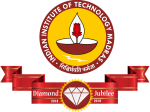
Agriculture, especially in emerging economies, is seldom associated with profits. Farmers usually suffer from poverty and the unpredictability of the weather, mechanization, fragmented land holdings, lack of timely credit and so on.
Thus a new concept has emerged among firms, especially in order to attain profitable commodities from the farmers. This strategy is called contract farming (CF), and it is gaining popularity in agribusinesses in the recent days.
Despite various drawbacks such as unpredictable weather and fragmented land holdings of farmers, firms are adapting this strategy because it allows them to maintain an appropriate amount of control on its raw materials’ production, quality, and traceability without entirely owning them throughout the cropping cycle.
Keeping this strategy in mind, the authors of this paper which include Mr. Nilanjan Dutta and Prof. Arshinder Kaur from the Department of Management Studies, Indian Institute of Technology (IIT) Madras, Chennai, India, have devised a strategy where part of the payment is given in advance by the firm to the farmer. The rest of the payment is given after the delivery of the contracted raw materials.


The authors of this paper have devised a mathematical model to predict the farmers’ delivery of commodities using a decision theoretic framework based on the Prospect Theory. The model also helps calculate the upper and lower bounds of the commodities to be delivered by the decision-biased (loss averse) farmers, thus defining the firm’s production quantity and profitability limits.
The model also gives the optimal timing for paying the advances to the eligible farmers using two different strategies – one that favours the firm’s profit maximization objective, while the other maximizes its marginal cost savings from contracting.
The second strategy shows that farmers can also get a substantial amount of utilities, while at the same time, the firm’s profitability remains almost unaffected. For this reason, contract farming has been seen as the poster child of socio-economic development in the agricultural sectors of emerging economies.
The authors hope that their model based on contract farming will aid policymakers in
designing such mechanisms that would encourage more firms to offer
advance-payment contracts. It can also be used to shortlist eligible farmers considering
behavioural aspects and disburse their advance payments.
The model can also be further modified to assess the risk attitudes of the contracting firms, the amount of payment given in advance to the farmers, the farmers’ output, and so on. All in all, the socio-economic benefits of the model have been proven by the authors. This model can also be adjusted to suit the needs of larger firms sourcing from poor suppliers in sectors other than agriculture, as well.
Prof. Onur Boyabatli from Singapore Management University (SMU), Singapore, pointed out the important findings of this paper by giving the following comments: “Contract farming, where buyers contract farmers crops in advance of the growing season, is a commonly used practice in variety of agricultural industries. This paper examines one of the important motivations behind contract farming, providing payment to farmers in advance of the planting (which is useful for facilitating planning and investment for the farmer). Among other things, this paper examines the optimal time for disbursement of the advance payment. The paper’s most critical finding is that when the disbursement is decided based on maximizing the savings on purchasing crop from a farmer instead of the spot market, it significantly increases smallholders’ welfare without very negatively affecting the contract buyer’s profit. By implementing such disbursement strategy, the contract buyer can deliver a social value to the under-privileged farmers without compromising profit.”
Article by Akshay Anantharaman
Here is the original link to the paper:
https://link.springer.com/article/10.1007/s10479-022-04899-7










